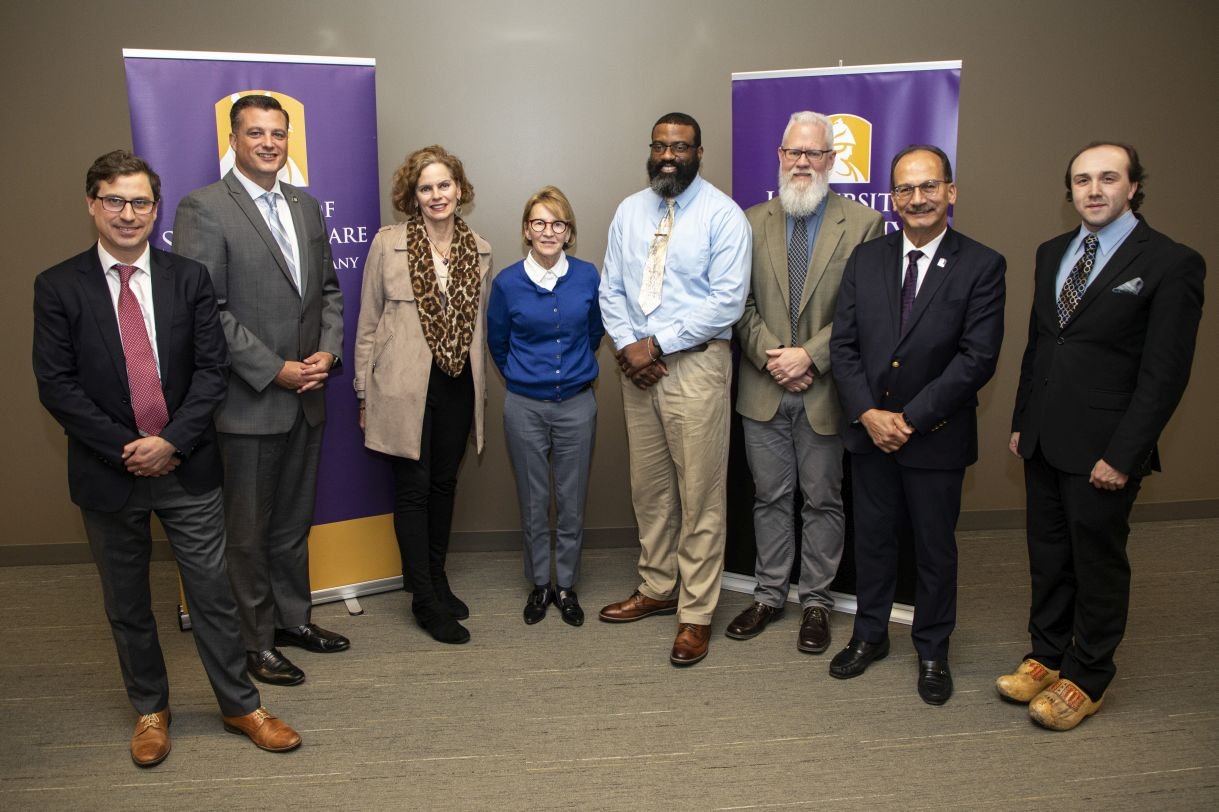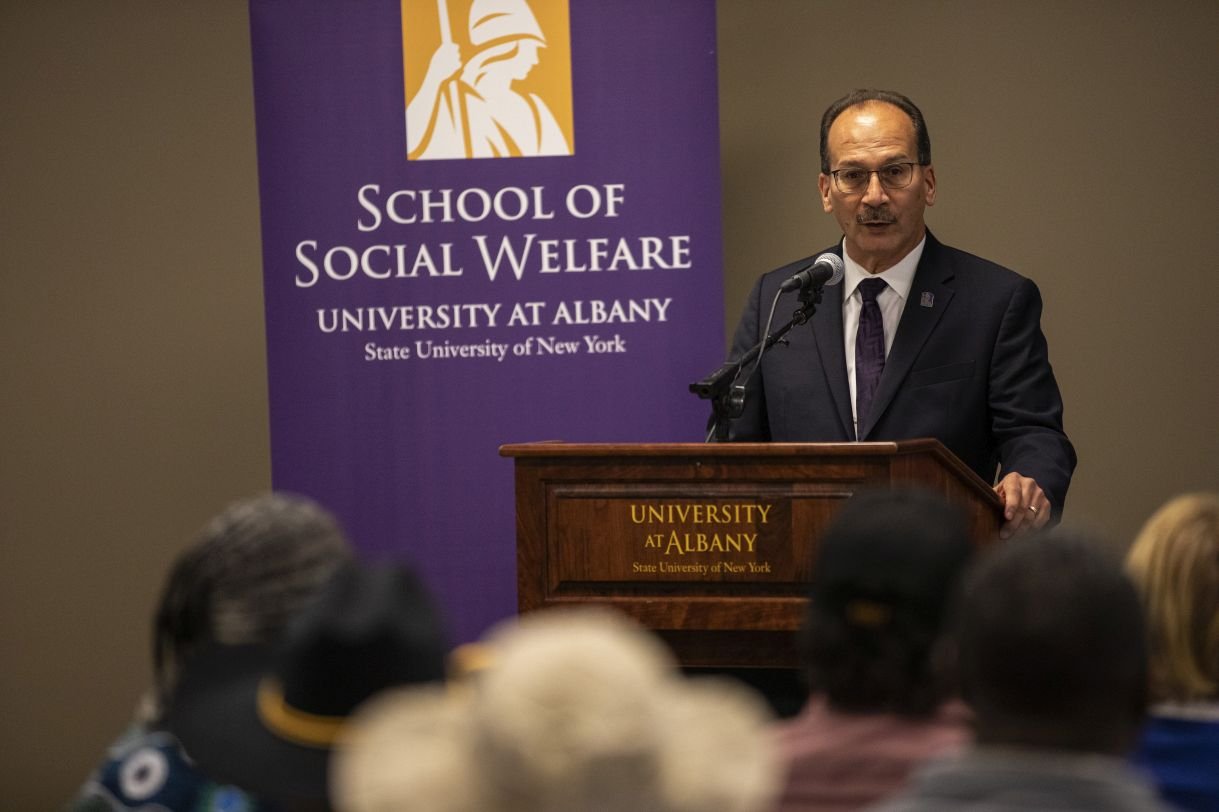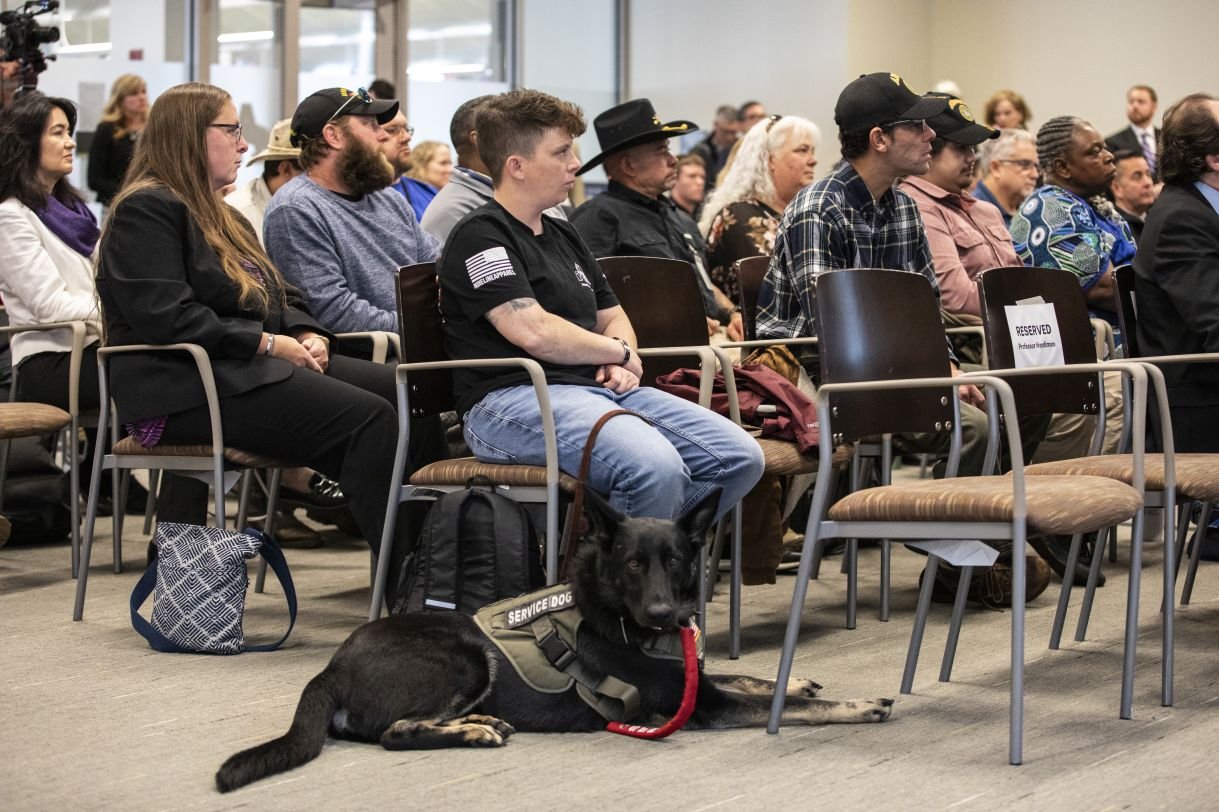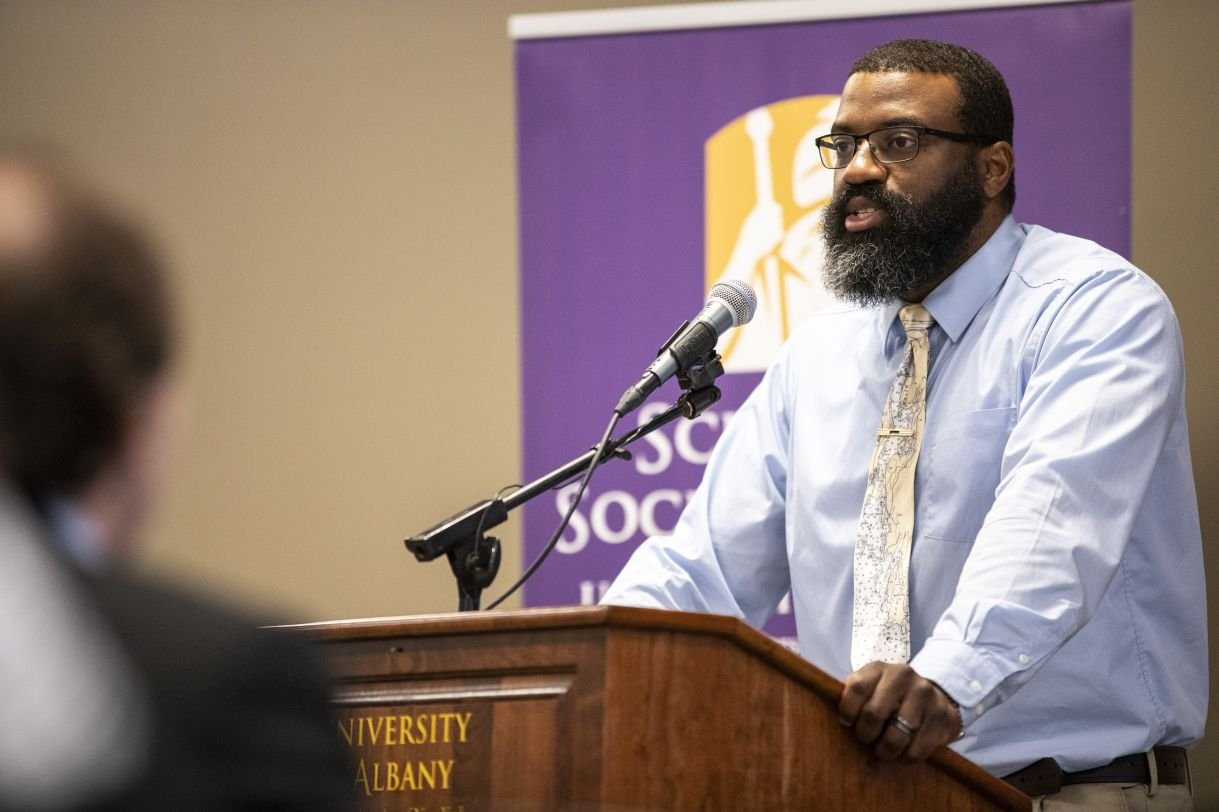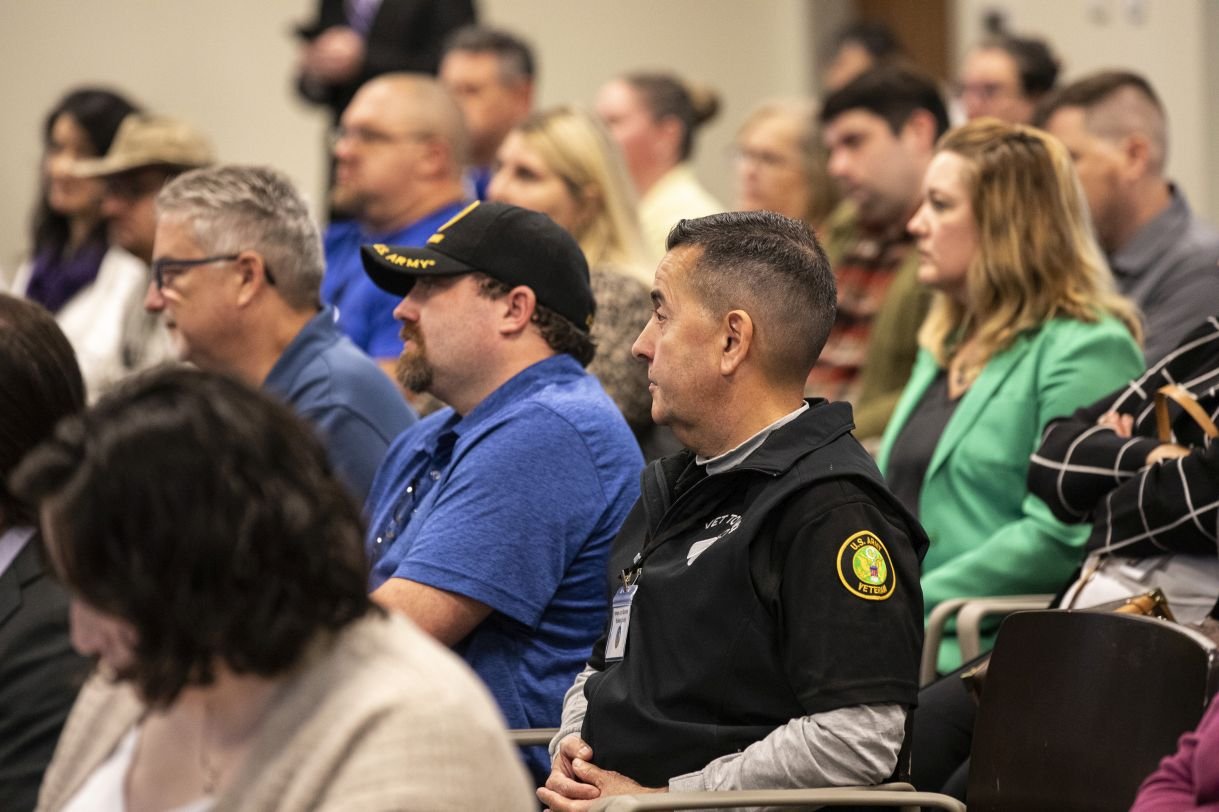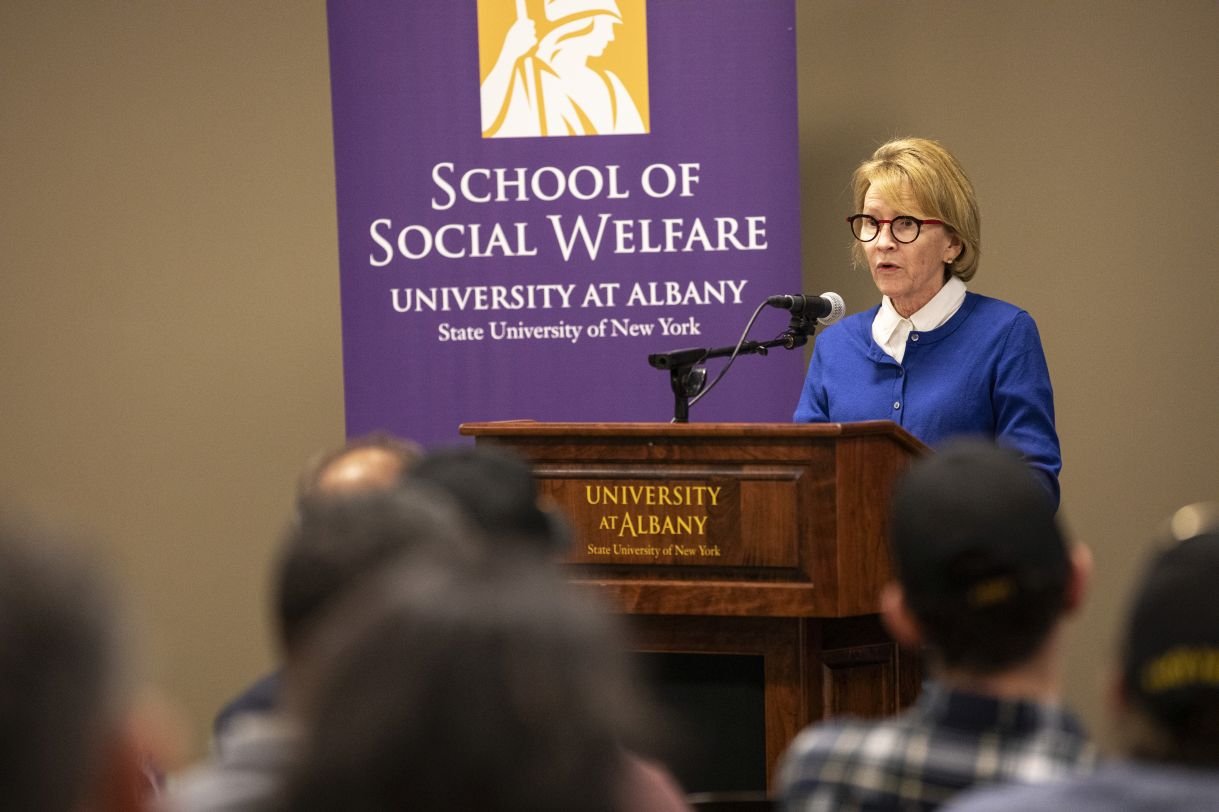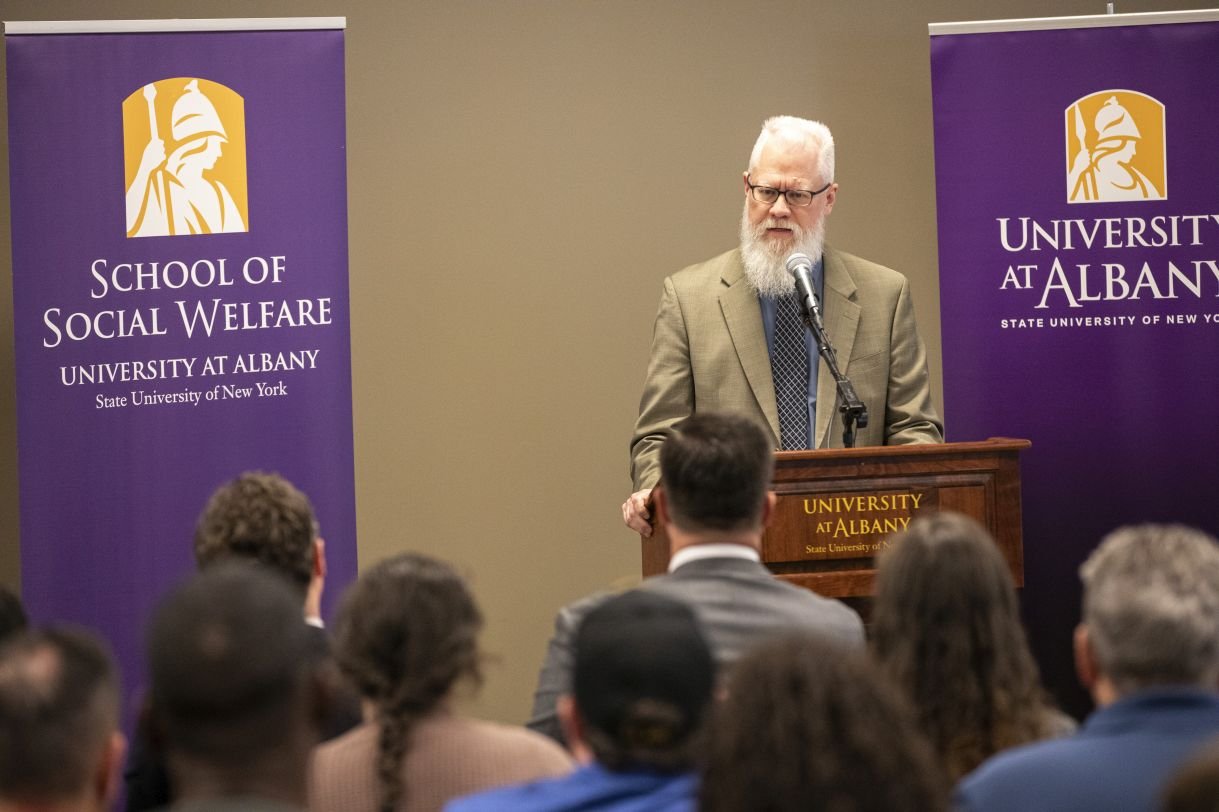School of Social Welfare Celebrates Success of the Dwyer Veterans Peer-to-Peer Support Program
By Erin Frick
ALBANY, N.Y. (Nov. 7, 2023) — In the lead-up to Veterans Day, the University at Albany’s School of Social Welfare (SSW) hosted a press conference to mark the 10th anniversary and recent expansion of the PFC Joseph P. Dwyer Veterans Peer-to-Peer Support Program into every county in New York. The press event was held in conjunction with the program’s annual two-day conference, which was held at UAlbany on Nov. 1-2.
Administered by the NYS Office of Mental Health, with collaborative support from the NYS Department of Veterans’ Services, the Dwyer Veterans Peer-to-Peer Support Program offers life-saving mental health and social support to thousands of veterans across New York State.
Since its inception, UAlbany’s School of Social Welfare has been instrumental in the program’s evaluation, development and expansion. Led by Associate Professor Eric Hardiman, the SSW research team has identified best practices, developed an implementation guide for new programs and is actively involved in collecting program data at the county level.
“The Dwyer program is a truly exceptional resource for the veterans of New York,” said UAlbany President Havidán Rodríguez, who is himself a veteran, having served in the United States Air Force. “The program was initially available in only four counties: Rensselaer, Saratoga, Suffolk and Jefferson. But now, thanks to the work of the NYS Office of Mental Health and the NYS Department of Veterans’ Services, with funding from the State Senate and Assembly, the Dwyer program is now available throughout the state, serving veterans and their family members in all 62 counties.”
Dwyer program services are delivered exclusively by veterans, for veterans. The program creates opportunities for veterans to build community through a range of interactive resources which include recreational, artistic, social, educational and wellness-oriented activities, among other forms of engagement. Dwyer facilitators are trained in suicide prevention, as well as trauma-focused and peer-based approaches. They also make referrals for those wishing to connect with a clinical provider.
“We at the University at Albany have seen the transformational power of the Dwyer program thanks to Dr. Eric Hardiman and his colleagues at UAlbany’s School of Social Welfare, who serve in an evaluation and research capacity to analyze the program’s service delivery,” Rodríguez said. “In order to identify best practices, Dr. Hardiman and his team of doctoral research assistants communicate and collaborate with each county's Dwyer program, not only collecting data, but also providing valuable technical assistance and support to the program.
“Through our involvement with this project, UAlbany remains strongly committed to bettering the lives of veterans across the state of New York. The success of this program and its growth in its first decade are a testament to Private First Class Dwyer and to all veterans who returned from service suffering with PTSD, traumatic brain injury, or any of the range of stressors our veterans face after discharge. The Dwyer program is a shining example of true community-based innovation and has made tremendous contributions to the wellness of New York State and to our veteran and military communities.”
By offering mental health and other supports in a non-clinical environment, the Dwyer program alleviates the burden of stigma that can surround mental health care. Open to all veterans, it also fills a critical service gap for those who are not receiving VA assistance.
“The Dwyer program has facilitated over 12,000 support groups to date, with county-level programs reporting over 300,000 individual face-to-face contacts with veterans,” Hardiman said. “These are support groups provided by veterans for veterans, not with clinicians, counselors, psychiatrists or social workers, but peer veterans.”
Hardiman explained that one of the key strengths of the Dwyer program is its role in providing identity and purpose for veterans. This, he said, is something that many veterans report missing after leaving the military.
“The Dwyer program gives that sense of purpose back, and that purpose is saving other veterans' lives,” Hardiman said. “When you see veterans going to a baseball game together or going bowling together, these things might not look like interventions; they may not look clinical. But that might be a life-saving moment. That might be the moment when that person emerges from isolation and starts to connect with his or her peers and think differently about their hope for the future. While it's not always obvious to the casual observer, this is a lifesaving program.”
New York is leading the country in delivering peer support services for veterans statewide.
“There is no other state in the country that has delivered a systematic program like this with the scope and impact that Dwyer has had,” said Hardiman. “New York State has shown that rather than assuming that veterans’ needs could be met through the VA or through other programs, that Dwyer program has shown that peer support works, that veterans are valuable, that they are a critical resource for the state.”
Speakers at the event included:
- President Havidán Rodríguez, University at Albany
- NYS Senator Jacob Ashby (Ranking Member, Veterans, Homeland Security and Military Affairs Committee)
- NYS Assemblymember Aileen Gunther (Chair, Committee on Mental Health)
- NYS Assemblymember Patricia Fahy
- NYS Office of Mental Health Deputy Commissioner Jeremy Darman
- NYS Department of Veterans’ Services Deputy Commissioner Benjamin Pomerance
- Gavin T. Walters Sr, MSW-USAF, Program Director of Vet2Vet of Ulster County and NY State Dwyer Coalition Facilitator
- Eric Hardiman, Associate Professor, UAlbany School of Social Welfare
Resources for Veterans
On-campus resources for UAlbany students can be accessed through the Office of Veteran and Military Student Services. Students can contact the office by emailing [email protected] or calling 518-442-5501.
To learn more about the Dwyer program or get involved, contact Gavin Walters at [email protected].





